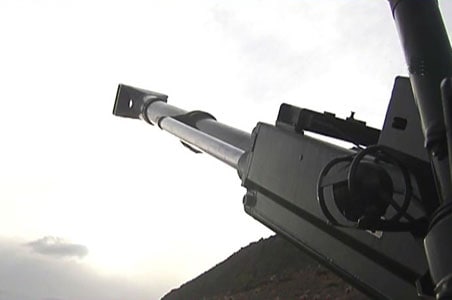
New York:
During the Kargil war in 1999, the then US President Bill Clinton was ready to "jump on a plane" to prevent the conflict's escalation into full fledged nuclear warfare as Pakistan had almost prepared itself to nuke India fearing military defeat, a book which hit the stores on Tuesday has claimed.
Pulitzer Prize-Winning author and historian Taylor Branch claimed in his book that at the peak of Kargil warfare, Clinton told him that Pakistan sneaked its soldiers across the Line of Control as part of its strategy to escalate tension with India and thus gain international attention.
"Clinton surprised me about Kashmir... He said skirmishes there were much more serious than reported," Branch writes in his 700-page book titled 'The Clinton Tapes: Wrestling History with the President'.
"If they (India and Pakistan) called tonight, and said I could end this thing by flying over there, I would have no choice but to jump on the plane," Clinton was quoted as saying in the book, which is based on the secret taped conversations between Clinton and Branch.
"There is no greater responsibility for me than to reduce conflicts that threaten nuclear war, and this one certainly does," Clinton said.
Branch says that during one of those conversations, Clinton told him that "only four months ago, the leaders of India and Pakistan had embarked on a startling peace pilgrimage, worthy of Gandhi, riding trains and buses to meet for peace talks near their border in Punjab."
They pledged jointly to end the festering dispute over Kashmir, which had triggered two of their three wars since partition in 1947, the then US President told his historian.
"This new crisis snatched fear from hope, showing how swiftly politics can change. Since May, said the President, Pakistan had sneaked military units across Kashmir's de facto Line of Control into mountain redoubts as high as eighteen thousand feet to shell Indian outposts in the populated valley below," Branch writes.
"Euphoria vanished, and the governments seethed with intrigue. Civilians and generals disputed each other on both sides. Elements within Pakistan had engineered the covert war to attract international mediation, hoping to realise the popular demands of Kashmir's heavy Muslim majority for independence or annexation by Pakistan," the book says quoting Clinton.
"Failing mediation, Pakistan's zealots prepared nuclear attacks to stave off annihilation by India's conventional forces. India's zealots prepared nuclear attacks to preempt Pakistan, or retaliate, or defy any mandate for India to weaken its legal rule over Kashmir," Branch quoted Clinton as saying.
"Clinton said the current intelligence reports detailed by far the gravest alarm of his presidency. He could not say more, even on these restricted tapes, but Kashmir was far from over as a threat," the book says.
Pulitzer Prize-Winning author and historian Taylor Branch claimed in his book that at the peak of Kargil warfare, Clinton told him that Pakistan sneaked its soldiers across the Line of Control as part of its strategy to escalate tension with India and thus gain international attention.
"Clinton surprised me about Kashmir... He said skirmishes there were much more serious than reported," Branch writes in his 700-page book titled 'The Clinton Tapes: Wrestling History with the President'.
"If they (India and Pakistan) called tonight, and said I could end this thing by flying over there, I would have no choice but to jump on the plane," Clinton was quoted as saying in the book, which is based on the secret taped conversations between Clinton and Branch.
"There is no greater responsibility for me than to reduce conflicts that threaten nuclear war, and this one certainly does," Clinton said.
Branch says that during one of those conversations, Clinton told him that "only four months ago, the leaders of India and Pakistan had embarked on a startling peace pilgrimage, worthy of Gandhi, riding trains and buses to meet for peace talks near their border in Punjab."
They pledged jointly to end the festering dispute over Kashmir, which had triggered two of their three wars since partition in 1947, the then US President told his historian.
"This new crisis snatched fear from hope, showing how swiftly politics can change. Since May, said the President, Pakistan had sneaked military units across Kashmir's de facto Line of Control into mountain redoubts as high as eighteen thousand feet to shell Indian outposts in the populated valley below," Branch writes.
"Euphoria vanished, and the governments seethed with intrigue. Civilians and generals disputed each other on both sides. Elements within Pakistan had engineered the covert war to attract international mediation, hoping to realise the popular demands of Kashmir's heavy Muslim majority for independence or annexation by Pakistan," the book says quoting Clinton.
"Failing mediation, Pakistan's zealots prepared nuclear attacks to stave off annihilation by India's conventional forces. India's zealots prepared nuclear attacks to preempt Pakistan, or retaliate, or defy any mandate for India to weaken its legal rule over Kashmir," Branch quoted Clinton as saying.
"Clinton said the current intelligence reports detailed by far the gravest alarm of his presidency. He could not say more, even on these restricted tapes, but Kashmir was far from over as a threat," the book says.

